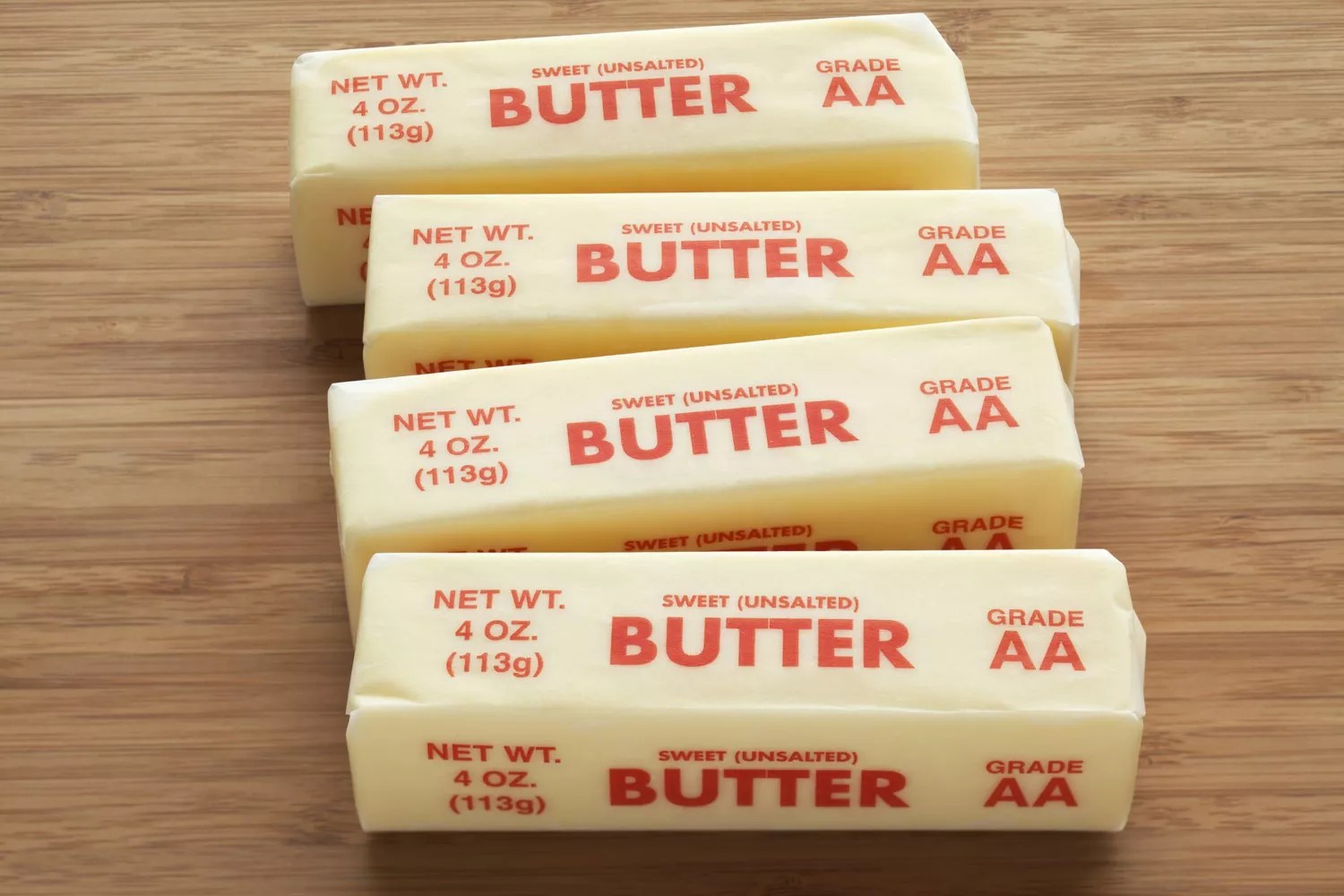It’s common kitchen wisdom that dairy products like milk and cheese should be refrigerated and kept cool when being served in order to head off spoilage. A carton of milk or tub of ricotta that is turning or already spoiled will have a compromised flavor, odor, and texture. It could also make you sick.
But butter is unlike milk and most cheeses. In fact, some cooks leave a stick or two out all the time because they like for it to be warm and easily spreadable. But is leaving butter out safe? Will room temperature butter make you ill?
Whether you accidentally left the butter out after breakfast, or you’re wanting to keep spreadable butter on hand, find out if it is OK to eat butter that’s been out of the fridge — and if it’s OK to store butter on the counter so you always have a spreadable schmear for your toast or bagel.

Is It Safe to Leave Butter on the Counter?
It’s almost always safe to leave butter on the counter or to eat butter that has been out of the fridge for a while. Unlike soft cheeses, such as cream cheese, ricotta, or cottage cheese, butter can stay out of the fridge for hours, even days, without the risk of spoilage or food safety issues.
“Butter is safe to eat after being out at room temperature,” says Bri Bell, a registered dietitian, and food safety expert. “One reason it doesn’t go bad as quickly as other dairy products at room temperature is because it’s low in carbohydrates and proteins, which are mold and bacteria’s preferred food sources.”
How to Safely Keep Butter at Room Temperature
Just because it is generally safe to leave butter on the counter doesn’t mean there aren’t a few food safety strategies you should follow. Properly storing butter at room temperature will help preserve flavor and texture for longer periods of time.
1. Keep the right type on the counter
Unsalted butter is fine at room temperature, but salted butter is better. In fact, salted butter can sit out on the countertop for a longer period of time without spoiling, since salt is a natural preservative, Bell explains. That means the salt protects against bacterial growth.
2. Store it in the right container
Don’t leave butter in the wax paper wrappings it comes in if you plan to leave the stick out for more than a few hours. Instead, look for a butter dish that will keep the air and light away from the butter.
Better yet, opt for a butter crock or butter bell. These storage containers submerge a small pot of butter in water to create an airtight seal.
3. Make sure it’s cool
Temperature affects the amount of time that butter will last outside of the fridge. A hot environment may cause the butter to spoil faster or lose its texture. If your kitchen is regularly above 70 degrees F, it’s safer to keep the better in the refrigerator

How Long Can You Leave Butter on the Counter?
The U.S. Department of Agriculture recommends leaving butter at room temperature no more than two days. After that period of time, the butter can turn rancid. This will cause off flavors and unpleasant texture.
However, if you follow the butter storage tips above, butter can stay fresh up to two weeks on the counter.
But Should You Leave Butter Out?
Just because you can leave butter on the counter doesn’t mean you will want to. Butter can lose its taste over time, especially if stored improperly. Butter easily absorbs odors from around your kitchen. The spread already has a delicate flavor, so if you taste other foods or scents when you eat a bit of it, you may want to trash it.
Before you spread, give the butter a once over. The best way to tell if the butter has gone past the point of safety is by checking for signs of spoilage, such as bad odors, mold growth, and an altered texture. When in doubt, skip the spread and go for fresh-from-the-fridge butter.
“You may be able to still eat butter that’s left at room temperature for a few days, but you may notice changes to the color or flavor as it starts to go bad,” Bell says. Off-putting qualities, like an oily texture or unusual flavors, may make the butter less appealing to you, so you may decide to toss butter that’s been out for a while. However, even if it doesn’t taste the best, it’s likely still safe to eat.
“There’s a difference between pathogens that cause food to spoil, and ones that cause food poisoning,” Bell says. “For example, although most people in Western cultures would think it’s bad to consume sour milk, it is actually used in a lot of recipes from past generations and around the world.”
You should trust your instincts before diving into a stick if you don’t know how long it has been out or how it has been stored. See something that doesn’t look right? Go for a new stick.
“I wouldn’t recommend eating butter that seems off for the small chance that it does actually make you sick,” Bell says.

Takeaway
If you forgot to put the butter away after breakfast, put it back in the fridge when you remember it — or, more likely, when you discover it. That way, it’ll keep its desired flavor and odor.
Want spreadable butter on demand? You can store butter in a butter dish or butter crock, which will help protect the spread from odors and bacteria, for up to two weeks. Beyond being easily spreadable, having softened butter at the ready means you’re prepared to whip up a delicious compound butter at a moment’s notice.
And you likely do not need to worry about food safety issues if you eat butter that’s been out on the counter for a while. Butter doesn’t invite the growth of illness-causing bacteria due to its salty, low-protein nature. Salted butter is especially good at warding off bacterial growth because salt is a natural preservative.
That will come in handy if you’re hosting an event or throwing a party at home and need to set tables in advance.
“I wouldn’t worry about leaving butter out all day for a gathering like Thanksgiving or another shared food event, but for the most part, though, it should remain in the refrigerator both to preserve its taste and lifespan,” says Andrea Paul, MD and medical advisor at Illuminate Labs.
More Food Storage Inspiration
- How to Store a Frosted Cake
- How Long Does Bacon Last




